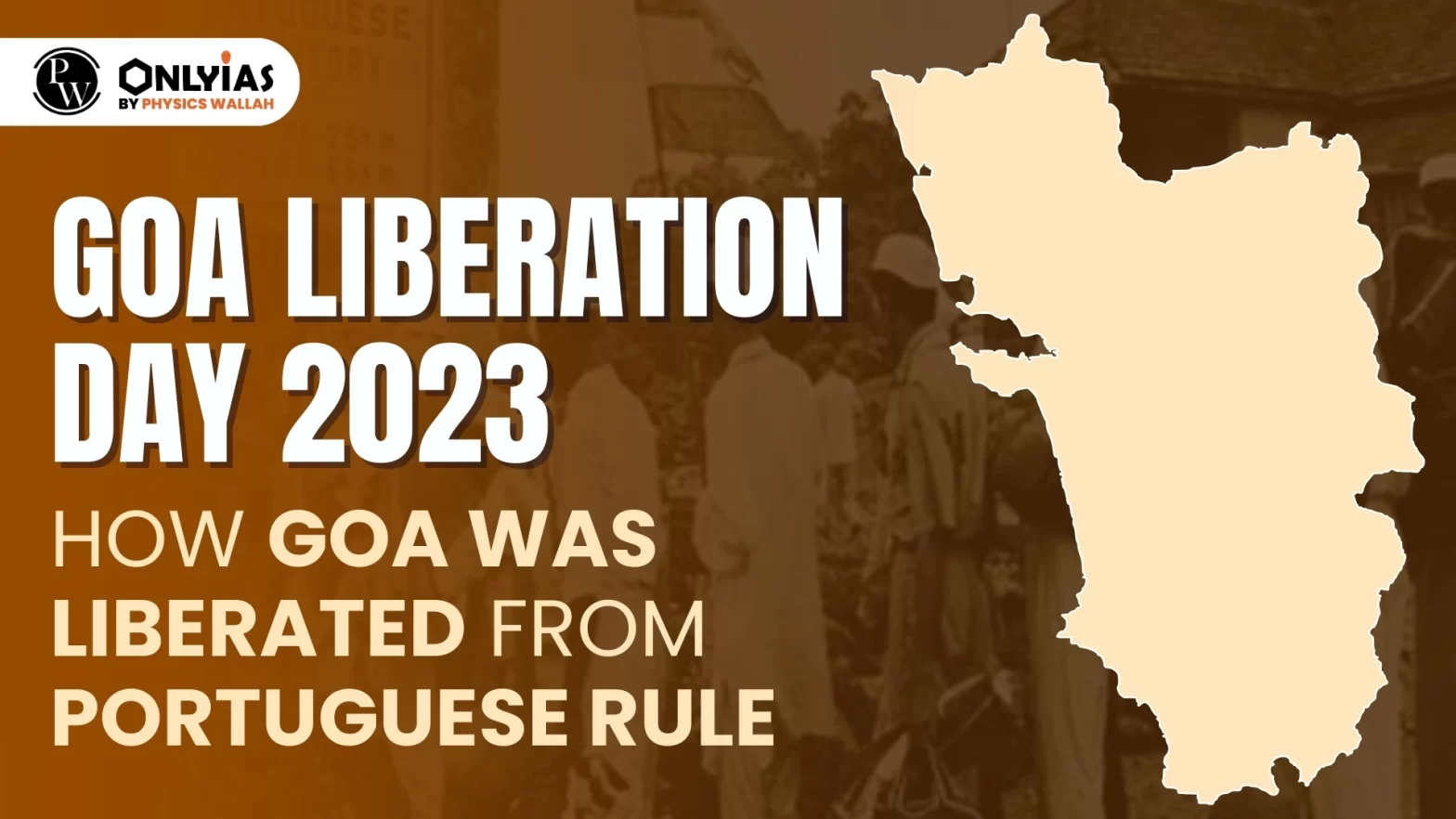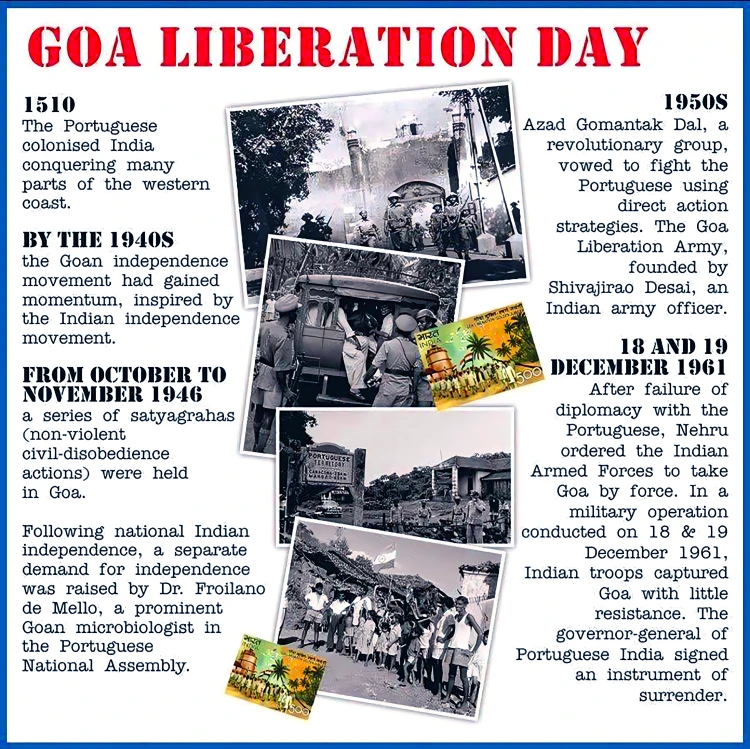December 19 is celebrated every year as Goa Liberation Day, to commemorate Goa, Daman, and Diu’s independence from Portuguese rule in 1961.

Context: December 19 is celebrated every year as Goa Liberation Day, to commemorate Goa, Daman, and Diu’s independence from Portuguese rule in 1961.

Continue Reading: Portuguese in India (1505-1961)
ALSO READ: THE CONTRIBUTION OF PORTUGUESE IN INDIA
| Must Read | |
| NCERT Notes For UPSC | UPSC Daily Current Affairs |
| UPSC Blogs | UPSC Daily Editorials |
| Daily Current Affairs Quiz | Daily Main Answer Writing |
| UPSC Mains Previous Year Papers | UPSC Test Series 2024 |
December 19 is celebrated every year as Goa Liberation Day, to commemorate Goa, Daman, and Diu’s independence in 1961.
Goa Liberation Day marks the independence of Goa from the Portuguese, who had ruled the territory since 1505.
On December 18 and 19, 1961, a full-fledged Military Operation, codenamed Operation Vijay, was carried out to liberate Goa.
Tristão de Bragança Cunha is known as the father of Goan nationalism for setting up the Goa National Congress.
Vasco de Gama was the first Portuguese to land in India in 1498 when his ship São Gabriel landed on the shores of Calicut in Kerala.
The port of Bombay, which was a harbour of Portuguese India as Bom Bahia, was handed over as dowry of Catherine de Braganza to Charles II of England in 1661.
The Goa Inquisition was set up when Francis Xavier requested it from King Joao III of Portugal. Its goal was to enforce Catholic Orthodoxy and allegiance to the Christian faith.
Manuel António Vassalo e Silva was the last Governor-general of Portuguese India.
<div class="new-fform">
</div>